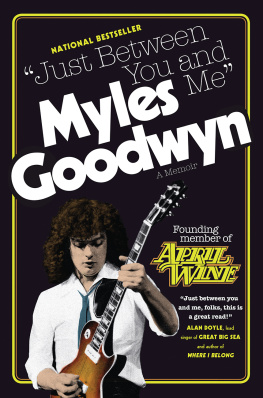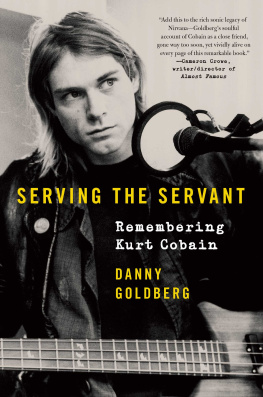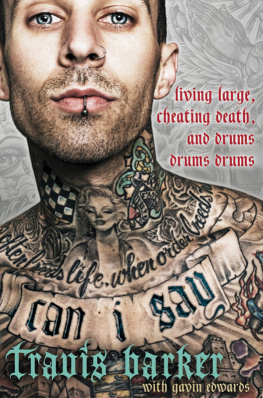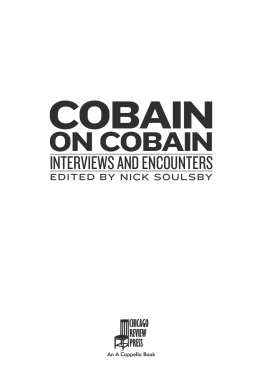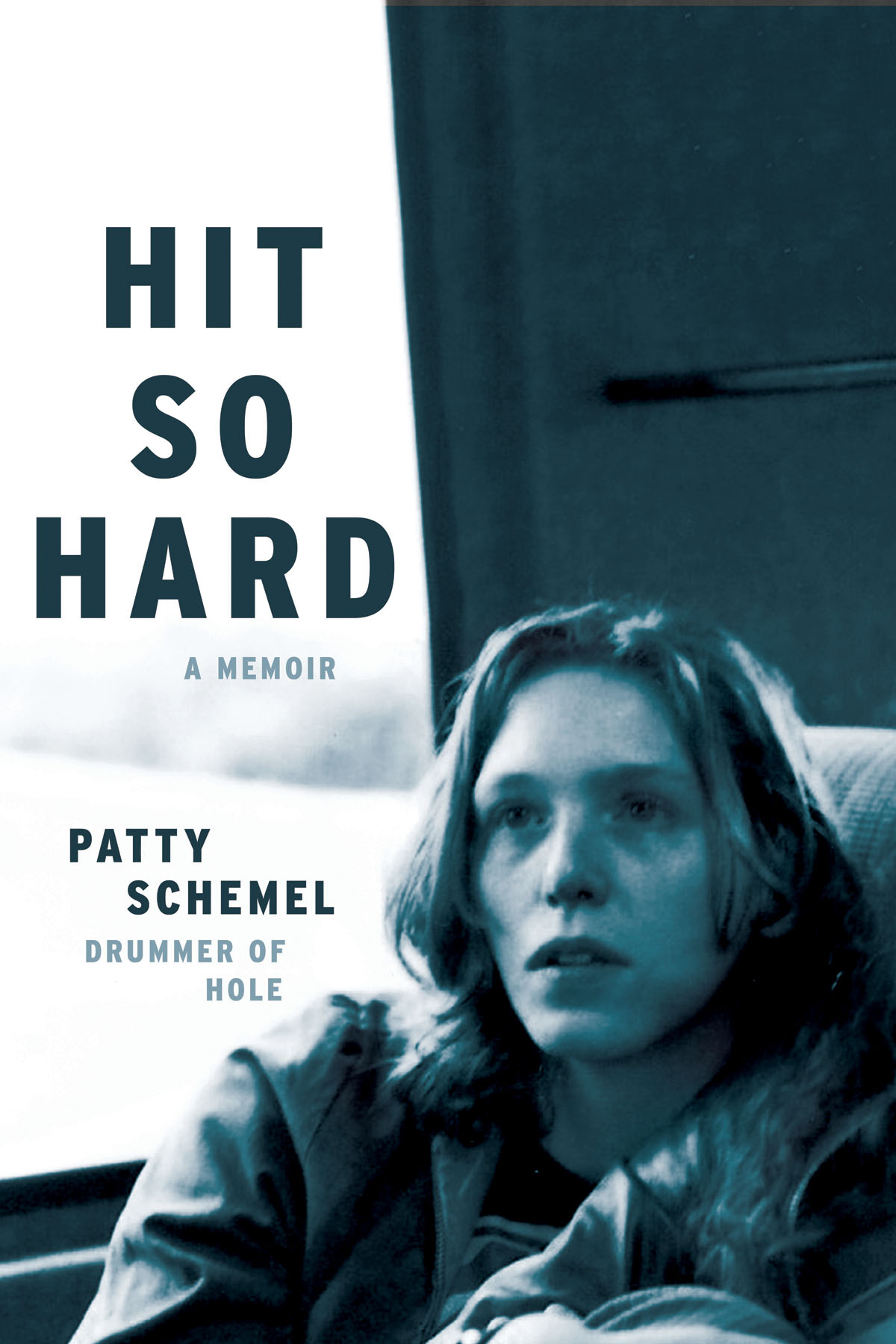Many of the designations used by manufacturers and sellers to distinguish their products are claimed as trademarks. Where those designations appear in this book and Da Capo Press was aware of a trademark claim, the designations have been printed in initial capital letters.
Copyright 2017 by Patty Schemel
Hachette Book Group supports the right to free expression and the value of copyright. The purpose of copyright is to encourage writers and artists to produce the creative works that enrich our culture.
The scanning, uploading, and distribution of this book without permission is a theft of the authors intellectual property. If you would like permission to use material from the book (other than for review purposes), please contact permissions@hbgusa.com .
Thank you for your support of the authors rights.
Da Capo Press
Hachette Book Group
1290 Avenue of the Americas, New York, NY 10104
www.dacapopress.com
@DaCapoPress, @DaCapoPR
First Edition: October 2017
Published by Da Capo Press, an imprint of Perseus Books, LLC, a subsidiary of Hachette Book Group, Inc. The Da Capo Press name and logo is a trademark of the Hachette Book Group.
The publisher is not responsible for websites (or their content) that are not owned by the publisher.
Editorial production by Lori Hobkirk at the Book Factory.
Library of Congress Cataloging-in-Publication Data has been applied for.
ISBNs: 978-0-306-82507-1 (hardcover); 978-0-306-82508-8 (ebook)
E3-20180119-JV-PC
For Beatrice, when shes older.
I was born recovering. I dont remember a time before I knew the concept. Im surprised my first spoken sentence wasnt Hi, my name is Patty, and Im already an alcoholic. It was the late 1960s, and Alcoholics Anonymous was our de facto church growing up in our community in Marysville, Washington, about 45 minutes north of Seattle. My parents were both in the ranks, and wed often host meetings in our living roommy brother, sister, and I casually listening in. Somehow I always knew that normal families didnt do this. For one, things were as shrouded in secrecy as they were out in the open.
My religious upbringing was never about God but God as you understand him (which is a difficult concept to grasp if you dont know what anyone else understands), and our guidelines for living were based on the Twelve Steps. I grew up hearing about my parents allergy to alcohol but never once saw them relapse. I understood that when my parents drank, it had been harmful and had caused them to mess up their lives, but I never related how that might have anything to do with mine. In my kid mind, I thought they were like that because they had both come from New York City, a whole galaxy awayand however sick they were before, theyd gotten better.
Id heard my mothers addiction story many times, as she relayed it to groups of addicts on a regular basis. She had a way of speaking that connected with every person in the room, from the newcomer in the back to the old-timers right up front. She wanted to be an actress, but her mother gave her two choices: become a nun or marry a good Irish catholic. She married an Irish cop, they moved to Brooklyn, and she became an alcoholic housewife of the 1950s. She had her first cocktail at a holiday party and talked about the way it tasted and the warm way it went down her throat, how after that first drink she had many more that night.
She did her best to keep up appearances, hiding bottles and keeping all the lies straight. She ended up in a psychiatric hospital (the way addiction was treated then), strapped to the bed with the d.t.s. She found AA when a neighbor came over to welcome her home from the hospital. This womans husband had begun going to meetings and hadnt had a drink in seven months. My mom broke down in her kitchen and asked for help. That evening a stranger came to pick her up for a meeting. In those days they called it a Twelve Step Call. She stayed sober and met my future dad at an AA meeting in 1964. They were both married to other people at the time, but within a year theyd fallen in love, imploded their lives, and camped across America in a Volkswagen bus before settling for a while in Los Angeles.
When an addict in recovery suddenly moves to a different part of the state/country/world, thats called a geographic cure. My parents believed in big life changes and do-overs of all kinds. My sister, Susan, was born on the road. I came two years later. Mom got pregnant again almost immediately after they had me, and we moved north to Washington where my brother, Larry, was born in 1968, forever marking us Irish Twins. My parents wanted to be artists and actors, but a bohemian life was not in the cards. The coffee-house they tried to open in eastern Washington failed to spark. Instead, Dad would commute every day to Seattle to work at the phone company while Mom would stay home with us kids, packing lunches and organizing AA meetings to be held in our living room. Weekends, we wore corduroy and went camping. It was the 1970s, and we were still a family, learning to fall in line and live out our respective roles. I was in the middle, the one who watched and waited.
WE LIVED IN a three-bedroom rambler-style house in a development on a cul de sac. Susan and I shared a bedroom, and Larry had his own. There were three styles of houses in this development, and that was the extent of the visual diversity there. Thickets of blackberry bushes separated our yard from the neighbors behind us, and fences separated the neighbors on each side. There was a path along the blackberry bushes that cut through the neighbors yard behind the house to the bus stop wed take to school until we were all old enough to drive. For entertainment we had a swing set and otherwise played in the street every day with the other kids in our neighborhood or listened to the trains roar down the tracks nearby.
You couldnt say we were poor but wouldnt say we made it all the way to middle class by todays standards either. The family car was an unreliable Chevy Impala with too many miles on it and an engine that would stall if you dared apply the brakes. Consequently, Mom had to teeter on the precipice of stopping when it was time to drop us in front of the school. We had to kind of jump out and hope for the best. I wasnt embarrassed or anythingmost of my friends families were in the same boat. At least my parents thick accents were a source of fascination for my friends, who were moved to do impressions. They used words like soda instead of pop or sofa instead of couch. I always wondered why they would want to move from the great City of New York all the way across the states to this grey and boring town where it rained all the time. Brooklyn had personality, and we lived basically Nowhere.
Ive always had a reputation for being stubborn and prone to angry outbursts, even as a kid. In fourth grade Mrs. Johnson wrote on my report card that I needed to watch my redhead hot temper. What can I say? I had a lot of unchanneled aggression. I was probably still angry with other adults I considered assholes, such as Mrs. Goodwin, who the year before had told my parents I was uncoordinated. I dont know what she meant by that; maybe she meant looks uncomfortable in a dress, which I will own. The bar for elementary schoolers wasnt set very high; at least I wasnt eating glue like Brent Stoller.
I was pretty androgynous then. Until about 8, Mom had been dressing me like my older sister for school each day: dresses and tights, little patent leather shoes. One day I told her I wanted to wear pants, and she said, Well, this is what all the big girls are wearing. I remember thinking,


